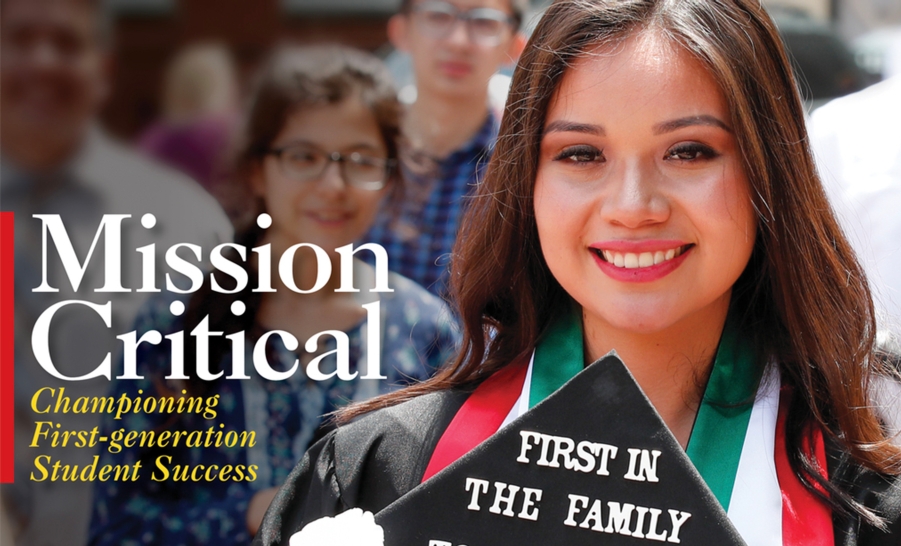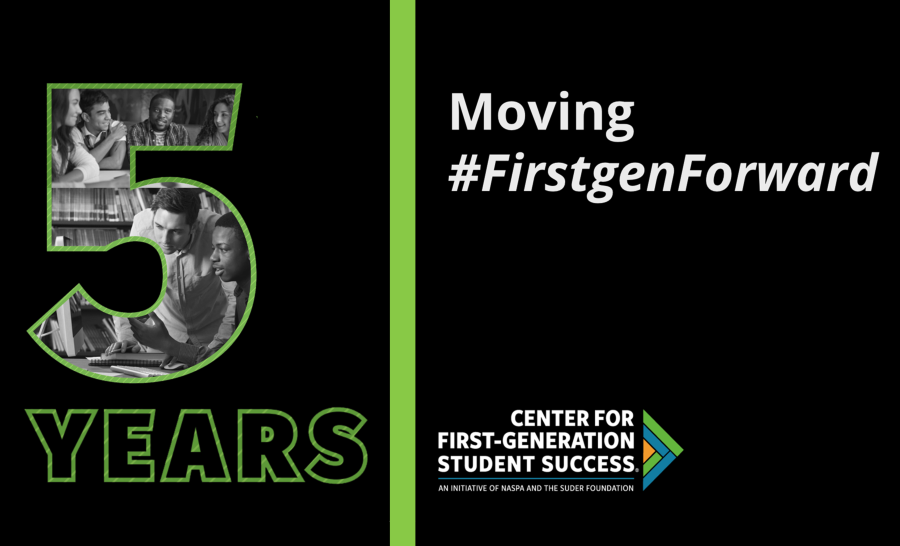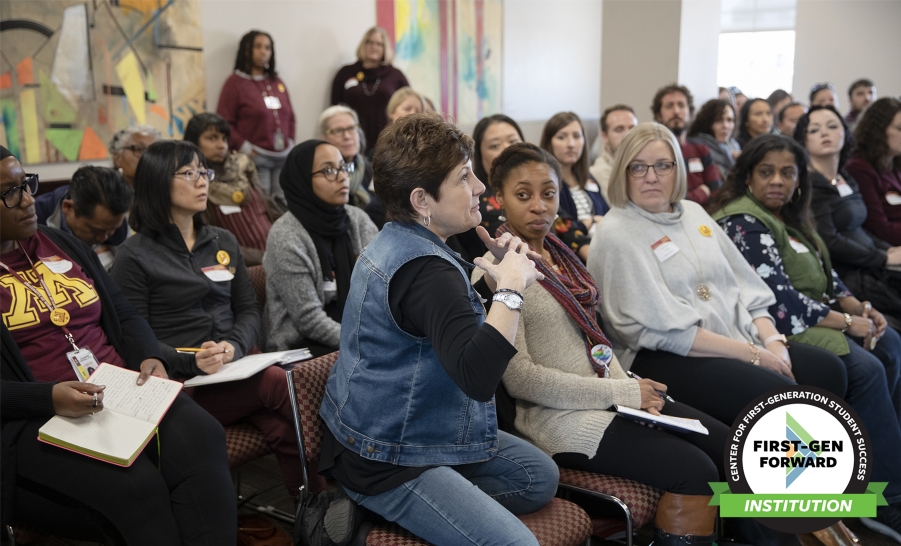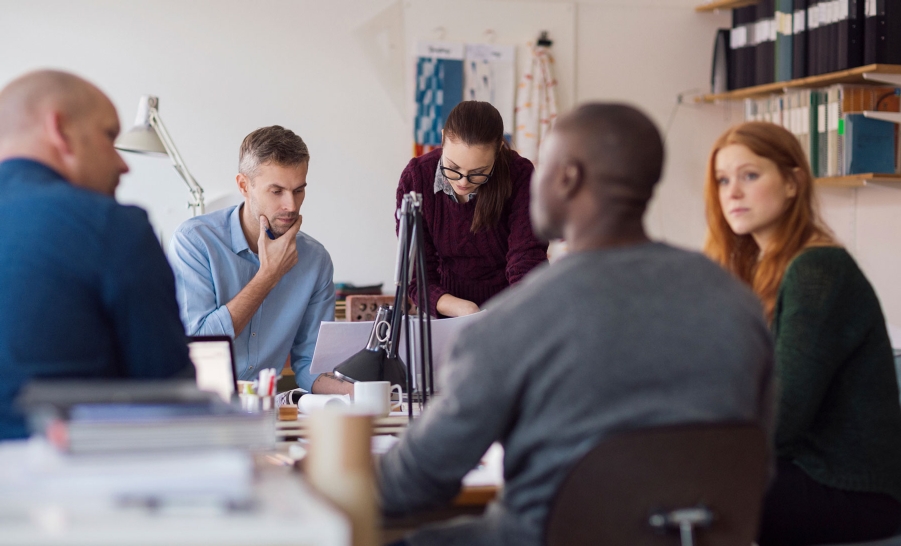Reimagining Conference Design: A Reflection on Attending The First-generation Student Success Conference
Katherine Lawlor, M.Ed., Northern Arizona University / FirstGen Forward / July 28, 2020
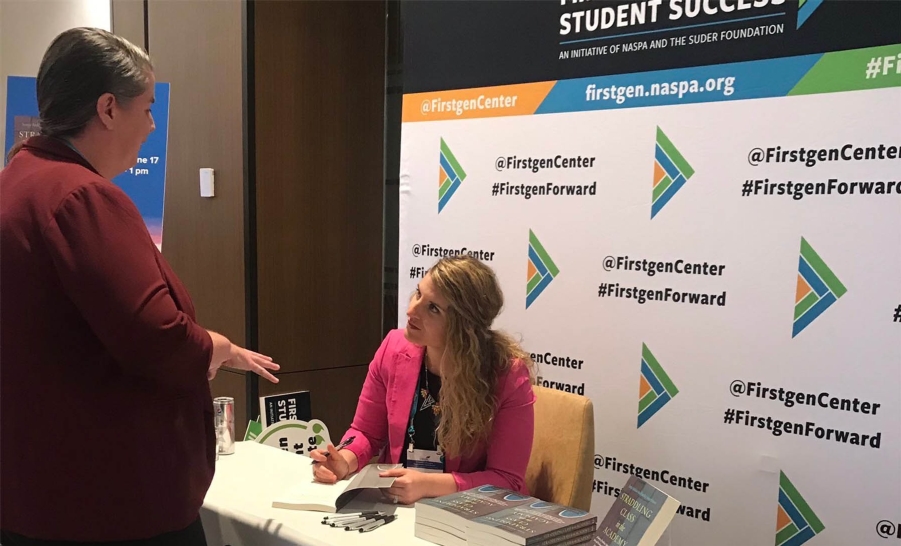
I recently attended the virtual First-generation Student Success Conference, and I would like to share my perspective as someone who identifies as a person with a disability. After the conference, I asked myself, “What design features can we take from the virtual conference environment that can lead to more inclusive practices for individuals with disabilities?” I now challenge others in our field to grapple with this and other questions.
For context, I would like to share a little about my story. I have been living with a complex autoimmune illness since I was a teenager. I finished my bachelor’s degree through an online program, which created space for self-directed learning and freed me from traditional attendance policies that govern in-person classes. As a graduate student, I attended the inaugural First-generation Student Success Conference in Orlando, Florida after learning that I was a first-gen graduate.
Having attended the same conference both in-person and virtually, I can share how I navigated the differing conference environments. As a graduate student who attended the conference primarily for networking purposes, the event left me physically exhausted each day. I wore business casual attire for the in-person conference, and if you have worn “professional” women’s shoes, then you know they are generally not designed for comfort. Since I was unable to afford a suit that fit me better, I was in physical pain due to inflammation. During the virtual conference, however, attendees were only visible a few times, so I wore my “Hoos First” T-shirt, a fleece jacket from Northern Arizona University (NAU), and jeans on day one. The virtual conference was about five to six hours long each day, whereas a typical in-person conference spans eight to twelve hours each day.
What design features can we take from the virtual conference environment that can lead to more inclusive practices for individuals with disabilities?
This year’s conference addressed several themes related to how higher education might reimagine engagement due to what we are learning during the novel coronavirus and various social justice movements. Ultimately, my participation in the entirely virtual First-generation Student Success Conference inspired me to reflect on the following questions.
Is professional attire an adequate predictor of an individual’s work performance?
During the in-person conference, I could have donned a cardigan instead of a blazer and worn more comfortable, casual shoes to help manage my pain. I may have been perceived as “unprofessional” for doing so, as my disability is invisible. My mentors taught me that advancing my career required me to “dress for the next position I wanted to achieve.” I believe this professional platitude perpetuates ableism and fails to consider the pain I must endure to make a good, “professional” impression.
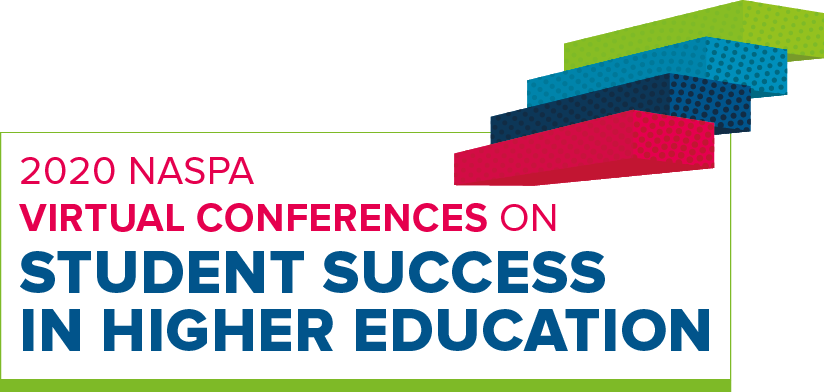 How might we reimagine content delivery and/or event schedules?
How might we reimagine content delivery and/or event schedules?

The virtual conference allowed me to participate through Twitter and chat/Q&A functions embedded within the conference platform. As an introvert, I felt more comfortable engaging in this way. Many attendees may want to maximize their time with colleagues during conferences, but reimagining conferences to include alternative engagement methods may improve the attendee experience.
Can we record sessions at in-person conferences so attendees can view them later?
Recording sessions may impact how conference attendees participate, but this option gives individuals with disabilities the ability to both care for themselves and enjoy the full conference experience. Without session recordings, individuals with disabilities may have to choose between self-care and quality conference content.
Ultimately, I urge higher education practitioners to reflect upon the questions above and use what they learn to ensure that future professional development opportunities are designed with individuals with disabilities in mind.
